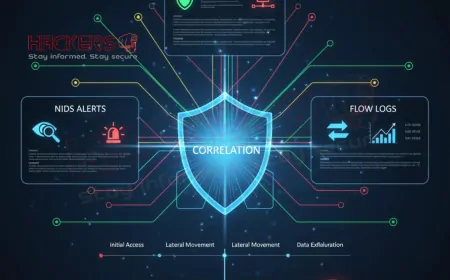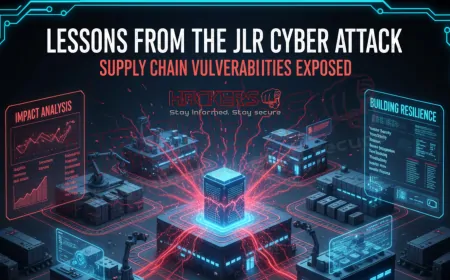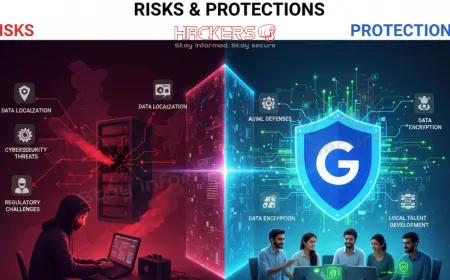What Skills Are Required to Succeed as a Network Security Architect?
In a world where digital systems power everything from banking to healthcare, keeping networks secure is more critical than ever. Network security architects are the professionals tasked with designing and maintaining the defenses that protect these systems from cyber threats. This role demands a unique blend of technical expertise, strategic thinking, and interpersonal skills. Whether you're an aspiring tech professional or someone curious about cybersecurity careers, this blog post will break down the essential skills needed to succeed as a network security architect in 2025, using clear language that anyone can understand.
Table of Contents
- What Is a Network Security Architect?
- Core Technical Skills
- Essential Soft Skills
- Analytical and Problem-Solving Skills
- Industry Knowledge and Certifications
- How to Develop These Skills
- Conclusion
- Frequently Asked Questions
What Is a Network Security Architect?
A network security architect is a specialized cybersecurity professional who designs and implements secure network infrastructures. They create the blueprints for networks that protect an organization’s data and systems from threats like hackers, malware, and unauthorized access. This role involves understanding an organization’s needs, assessing risks, and ensuring that security is built into every layer of the network, from routers to cloud systems.
Unlike general cybersecurity roles that might focus on monitoring or responding to incidents, network security architects take a strategic approach, planning and designing systems to prevent attacks. Their work is critical in industries like finance, healthcare, and technology, where a single breach can have devastating consequences.
Core Technical Skills
Network security architects need a strong foundation in technical skills to design and maintain secure networks. Here are the key technical skills required:
- Networking Fundamentals: Understanding how networks operate, including protocols like TCP/IP, DNS, and HTTP, is essential. Architects must know how data flows through networks and how to secure each component.
- Firewalls and Intrusion Detection: Familiarity with firewalls, intrusion detection systems (IDS), and intrusion prevention systems (IPS) is crucial for protecting networks from unauthorized access.
- Cloud Security: As organizations move to cloud platforms like AWS, Azure, or Google Cloud, architects need to secure cloud-based networks and understand shared responsibility models.
- Encryption and Cryptography: Knowledge of encryption techniques, such as AES or RSA, ensures that data remains secure during transmission and storage.
- Security Information and Event Management (SIEM): Tools like Splunk or QRadar help architects monitor network activity and detect potential threats in real time.
- Scripting and Automation: Basic scripting skills in languages like Python or PowerShell allow architects to automate security tasks and analyze data efficiently.
Here’s a table summarizing key technical skills and their relevance:
| Skill | Description | Why It Matters |
|---|---|---|
| Networking Fundamentals | Knowledge of protocols like TCP/IP and DNS. | Ensures secure data flow and network configuration. |
| Firewalls and IDS/IPS | Configuring tools to block unauthorized access. | Protects networks from external threats. |
| Cloud Security | Securing cloud platforms like AWS or Azure. | Critical for organizations using cloud services. |
| Encryption | Using techniques to secure data. | Prevents data breaches during transmission. |
| SIEM Tools | Monitoring network activity for threats. | Enables real-time threat detection. |
Essential Soft Skills
Technical skills alone aren’t enough to succeed as a network security architect. Soft skills are equally important for collaborating with teams and communicating complex ideas. Key soft skills include:
- Communication: Architects must explain technical concepts to non-technical stakeholders, such as executives or employees, in clear, simple terms.
- Collaboration: Working with IT teams, developers, and business units is essential to integrate security into projects.
- Leadership: Architects often guide teams, influence security strategies, and make high-stakes decisions.
- Adaptability: The ability to adapt to new technologies and evolving threats is critical in a fast-changing field.
These skills help architects bridge the gap between technical solutions and business needs, ensuring that security measures align with organizational goals.
Analytical and Problem-Solving Skills
Network security architects must think like both defenders and attackers to stay ahead of cyber threats. Key analytical skills include:
- Risk Assessment: Identifying vulnerabilities in a network and prioritizing them based on their potential impact.
- Problem-Solving: Designing creative solutions to secure systems without disrupting usability.
- Critical Thinking: Evaluating complex systems to anticipate how attackers might exploit weaknesses.
- Attention to Detail: Spotting small vulnerabilities that could lead to major breaches if overlooked.
These skills allow architects to proactively address threats and design robust defenses.
Industry Knowledge and Certifications
Staying informed about industry trends and regulations is vital for network security architects. They need to understand:
- Compliance Requirements: Regulations like GDPR, HIPAA, or PCI-DSS dictate how organizations handle data, and architects must ensure compliance.
- Emerging Threats: Knowledge of current threats, such as ransomware or zero-day exploits, helps architects design relevant defenses.
- Industry Standards: Familiarity with frameworks like NIST or ISO 27001 guides the development of secure systems.
Certifications validate expertise and are often required by employers. Top certifications include:
- CompTIA Security+: A beginner-friendly certification covering cybersecurity basics.
- CISSP (Certified Information Systems Security Professional): A globally recognized certification for experienced professionals.
- CCSP (Certified Cloud Security Professional): Focused on securing cloud environments.
- CISM (Certified Information Security Manager): Emphasizes security management and strategy.
How to Develop These Skills
Building the skills needed to become a network security architect requires dedication and a structured approach. Here’s how to get started:
- Earn a Relevant Degree: A bachelor’s degree in computer science, cybersecurity, or IT provides a strong foundation.
- Take Online Courses: Platforms like Coursera, edX, or Pluralsight offer courses on networking, cloud security, and encryption.
- Practice Hands-On: Use platforms like TryHackMe or Hack The Box to simulate network security scenarios and practice securing systems.
- Gain Experience: Start with entry-level roles like network administrator or security analyst to build practical skills.
- Pursue Certifications: Begin with Security+ and progress to advanced certifications like CISSP or CCSP.
- Join Communities: Participate in forums like Reddit’s r/netsec or attend conferences like DEF CON to learn from peers.
- Stay Updated: Follow blogs, podcasts, and newsletters to keep up with new threats and technologies.
By combining education, practice, and networking, you can steadily develop the skills needed to excel in this role.
Conclusion
Becoming a successful network security architect requires a diverse skill set that blends technical expertise, analytical thinking, and strong communication. From mastering networking and cloud security to staying updated on industry trends, these professionals play a critical role in protecting organizations from cyber threats. The journey to becoming a network security architect may take time, but with dedication to learning and hands-on practice, you can build a rewarding career in this high-demand field. Whether you’re just starting out or looking to advance, the skills outlined in this post provide a clear roadmap to success.
Frequently Asked Questions
What does a network security architect do?
They design and implement secure network infrastructures to protect data and systems from cyber threats.
What technical skills are most important for a network security architect?
Networking, firewalls, cloud security, encryption, and SIEM tools are critical.
Do network security architects need to know how to code?
Basic scripting in Python or PowerShell is helpful but not always required.
What certifications should a network security architect pursue?
CompTIA Security+, CISSP, CCSP, and CISM are highly recommended.
How important are soft skills for this role?
Communication, collaboration, and leadership are essential for working with teams and stakeholders.
What industries hire network security architects?
Finance, healthcare, technology, and government are top employers.
How long does it take to develop the skills for this role?
It typically takes 5-10 years of education and experience to become proficient.
Can I learn network security skills online?
Yes, platforms like Coursera, TryHackMe, and Hack The Box offer relevant training.
What is the role of compliance in network security?
Architects ensure networks meet regulations like GDPR or HIPAA to avoid penalties.
How do network security architects stay updated on threats?
They follow industry blogs, attend conferences, and join professional communities.
Is the network security architect role stressful?
It can be stressful due to the responsibility of preventing breaches, but it’s also rewarding.
Can network security architects work remotely?
Many roles offer remote work, though some require on-site collaboration.
What’s the difference between a network security architect and a cybersecurity architect?
Network security architects focus specifically on network infrastructure, while cybersecurity architects cover broader systems.
How do I start developing network security skills?
Start with a degree or online courses in networking and cybersecurity, then gain hands-on experience.
Are certifications necessary to become a network security architect?
They’re not mandatory but greatly enhance credibility and job prospects.
What tools do network security architects use?
They use firewalls, SIEM systems, encryption software, and network monitoring tools.
How important is cloud security for this role?
It’s critical, as many organizations rely on cloud platforms like AWS or Azure.
Can I become a network security architect without a degree?
Yes, with certifications and significant experience, though a degree helps.
What analytical skills are needed for this role?
Risk assessment, problem-solving, and critical thinking are essential.
How can I network with other cybersecurity professionals?
Join online forums, attend conferences, and participate in local cybersecurity meetups.
What's Your Reaction?



























































